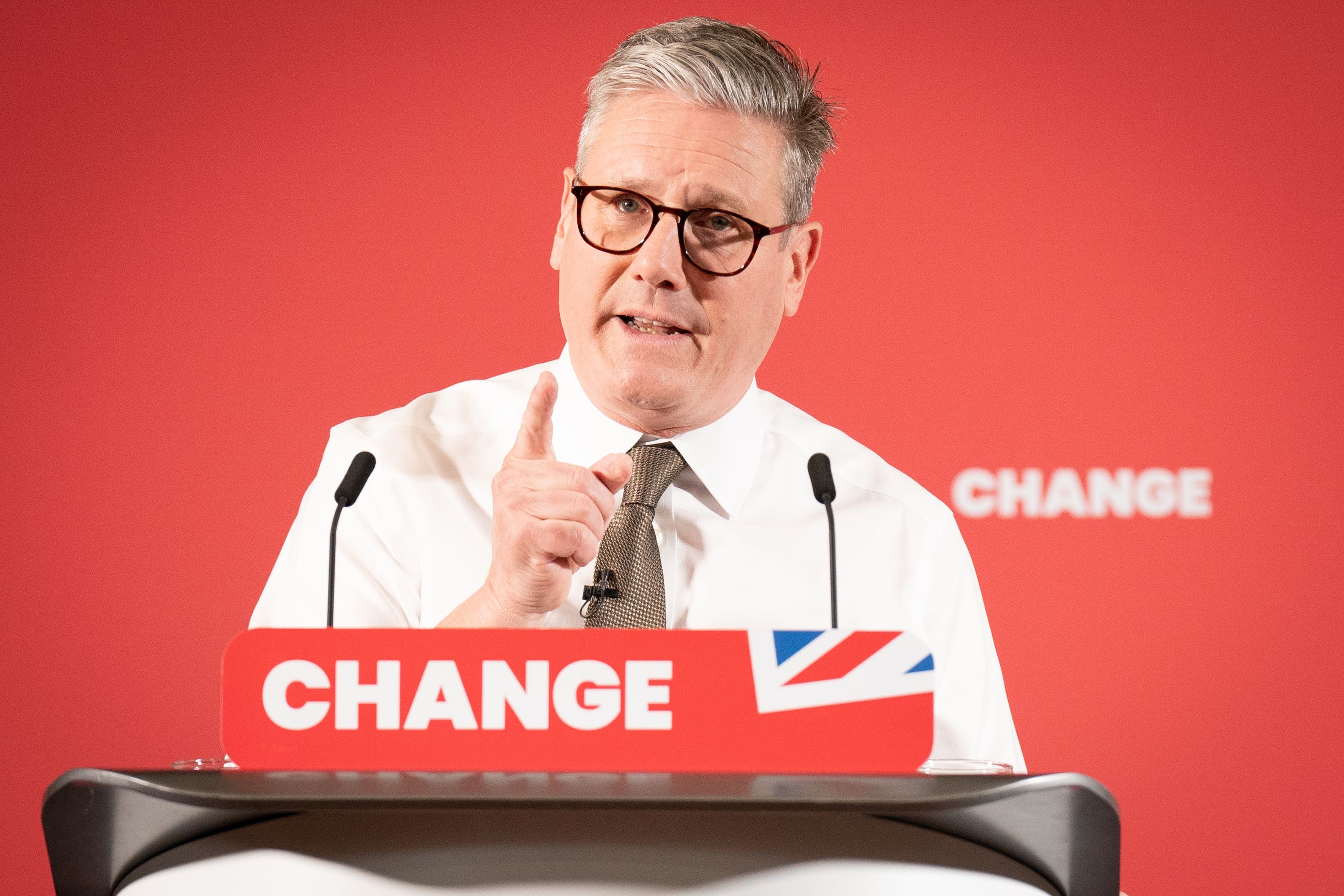What the brutal purge of the Labour left reveals about Sir Keir and his Starmtroopers
The Labour leader has been even more ruthless in imposing his favoured candidates on local parties than Tony Blair or Gordon Brown, writes John Rentoul


Your support helps us to tell the story
From reproductive rights to climate change to Big Tech, The Independent is on the ground when the story is developing. Whether it's investigating the financials of Elon Musk's pro-Trump PAC or producing our latest documentary, 'The A Word', which shines a light on the American women fighting for reproductive rights, we know how important it is to parse out the facts from the messaging.
At such a critical moment in US history, we need reporters on the ground. Your donation allows us to keep sending journalists to speak to both sides of the story.
The Independent is trusted by Americans across the entire political spectrum. And unlike many other quality news outlets, we choose not to lock Americans out of our reporting and analysis with paywalls. We believe quality journalism should be available to everyone, paid for by those who can afford it.
Your support makes all the difference.The swiftness and brutality of the purge takes the breath away. Candidates guilty of wrongthink have been despatched at the last moment, when there is no time for their supporters to organise to defend them, while a phalanx of loyalists have been imposed on local Labour parties without consulting their members.
Keir Starmer carries on campaigning in platitudes, and when asked about Diane Abbott he says with lawyerly blandness that nothing has been decided yet – which may be formally true – because the National Executive Committee (NEC) meeting hasn’t happened yet. But he has decided what he wants to happen at that meeting; it is just that he isn’t telling us.
Starmer is more ruthless than Tony Blair or Gordon Brown in dealing with potential rebels among Labour MPs and candidates. Hilary Armstrong, Blair’s chief whip, once suggested to Blair that he should deselect Jeremy Corbyn, but Blair, with a huge majority in parliament, said he thought the party could “tolerate that level of difference”.
Starmer, on the other hand, seems to think no risk of future insubordination is too small. Not that it is ever anything to do with him. “Independent” disciplinary processes seem to emerge from nowhere to cut down MPs and candidates who are not wholly on message.
Lloyd Russell-Moyle, the MP for Brighton Kemptown, discovered yesterday that he had been suspended following an anonymous complaint. He handled it with some dignity, saying, “I wish Keir Starmer, Angela Rayner and the Labour team the best of luck,” but that is the end of his parliamentary career. He will be replaced by a leadership loyalist chosen by the NEC with no chance for local members to have a say.
There is no time for party democracy, it is said, with nominations for the general election closing at 4pm next Friday, 7 June.
Faiza Shaheen, the candidate in Chingford who had attracted some attention as being the only one who could be described as a Corbyn supporter – although she is more interesting than that flat description – was also despatched last night into the outer darkness. She, too, will be replaced by a “Starmtrooper”.
Last night a slew of favoured candidates were imposed on local parties across the country. Georgia Gould, leader of Camden council, in a new west London seat. Josh Simons, director of Labour Together, the pro-Starmer think tank, in Makerfield. Luke Akehurst, a member of the NEC and organiser of the pro-leadership faction, in North Durham. And so on, and on.
Thanks to the diligent research of Michael Crick, the campaigning journalist, we can calculate that Labour candidates are being imposed in 22 seats without consulting local members – and there are still several days to go in which more outgoing MPs can announce that they will not be standing again, or more disciplinary procedures invoked.
There has always been a spate of candidates imposed at the last moment before a general election, and the Conservatives do it too. Richard Holden, the Tory party chair, for example, still doesn’t have a constituency to fight – his North West Durham seat having been abolished.
But there has rarely been a Labour purge on this scale, and there have never been so many favoured candidates imposed by Labour HQ. In many ways, it is magnificent. Starmer was worried about the poor quality of the parliamentary Labour Party, and his officials have been working hard for years to try to ensure that good candidates were selected this time round – the final push shows a real seriousness about power and how to wield it.
Join our commenting forum
Join thought-provoking conversations, follow other Independent readers and see their replies
Comments